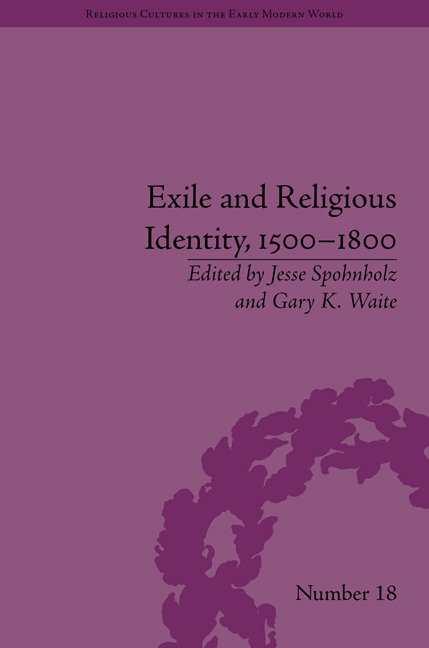Book contents
Introduction
Summary
In 1673 the Roman Inquisition began its investigation into the unusual case of Isaac Nabrusch, who, during his several periods of exile, confessed to having crossed the boundaries that normally delineated Judaism, Islam, Greek Orthodoxy and Catholicism, puzzling his investigators with his sincerity in each of his ‘conversions’. About a century earlier, the French Calvinist minister Jean de Léry (1534–c. 1613) returned to France from exile in Brazil, then used his knowledge of the cannibalism of Brazil's Tupí people to critique the religious wars ravaging his home country. These are merely two examples, drawn from the thirteen essays in this volume, of individuals whose exile from their homeland for religious reasons allowed them, or perhaps forced them, to reconsider their individual religious identity. While doing so, some of them also began to rethink the nature of religion itself. For most, the experience of losing their home for the sake of the faith was traumatic, though they demonstrate a variety of reactions and experiences.
The experiences of these exiles were hardly marginal to the larger developments taking place in the early modern period. After all, this was an era fundamentally marked by religious conflict, intolerance and persecution. During an era in which nearly every ruler in Europe assumed that the political and social order depended on securing some degree of religious uniformity within the territory, the frustrating persistency of religious dissent posed existential challenges for all.
- Type
- Chapter
- Information
- Exile and Religious Identity, 1500–1800 , pp. 1 - 8Publisher: Pickering & ChattoFirst published in: 2014



